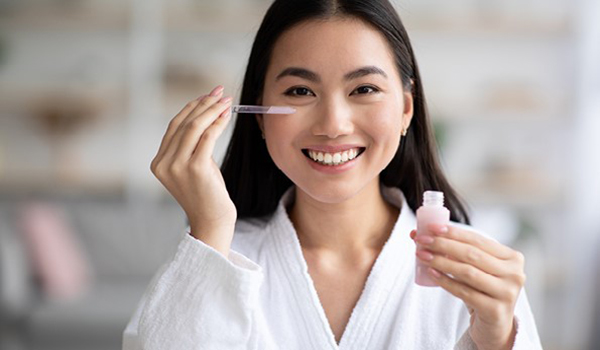Facial serums have emerged as a cornerstone in skincare routines worldwide, renowned for their ability to deliver high concentrations of active ingredients directly into the skin. These lightweight, fast-absorbing liquids are designed to penetrate deeply, offering targeted treatment to a variety of skin concerns such as aging, hyperpigmentation, dryness, and acne. With the myriad options available, selecting the right serum can seem daunting. This article aims to demystify facial serums and provide guidance on how to choose one that best suits your skincare needs.
Understanding Facial Serums
Facial serums are formulated with smaller molecules compared to traditional moisturizers, allowing them to deliver potent ingredients into the deeper layers of the skin. They are highly concentrated, meaning a little goes a long way, and they often omit occlusive agents like heavy oils or butters that are found in creams. This makes serums an excellent option for those looking to target specific skin issues with precision.
Key Ingredients in Facial Serums
- Antioxidants: These protect the skin from damage caused by free radicals and environmental stressors. Vitamin C is a popular antioxidant in serums, known for its ability to brighten the skin and reduce the appearance of fine lines and wrinkles.
- Hydrators: Ingredients like hyaluronic acid and glycerin attract moisture from the air into the skin, plumping it up and reducing the appearance of fine lines.
- Exfoliants: Acids such as AHAs (e.g., glycolic acid) and BHAs (e.g., salicylic acid) gently exfoliate the skin, removing dead skin cells and promoting cell renewal.
- Peptides: These are chains of amino acids that can penetrate the skin and signal it to produce more collagen, leading to firmer, younger-looking skin.
- Retinoids: Derived from vitamin A, retinoids are celebrated for their anti-aging and acne-fighting properties.
Choosing the Right Serum
- Identify Your Skin Concerns: Start by determining what you want the serum to achieve. Are you looking to combat aging signs, reduce hyperpigmentation, or hydrate your skin? Understanding your primary concerns will guide your choice.
- Consider Your Skin Type: If you have dry skin, look for serums with hydrating ingredients. Oily and acne-prone skin types may benefit from serums with exfoliating acids or niacinamide, which helps regulate oil production.
- Read the Ingredient List: Opt for serums with high concentrations of the active ingredients that target your specific concerns. Additionally, be mindful of ingredients you may be sensitive to.
- Patch Test: Before committing to a full-size product, perform a patch test to ensure the serum does not irritate your skin.
- Consult a Dermatologist: For those with specific skin conditions or sensitive skin, consulting a dermatologist can provide personalized advice and recommendations.
Beyond Serums: Considering Other Treatments
While serums are a key component of a skincare routine, it’s important to acknowledge other treatments that can complement their effects. For instance, Botox is another popular treatment for addressing signs of aging, working by temporarily paralyzing muscles to reduce the appearance of wrinkles. When incorporating such treatments, be sure to do so under the professional guidance of someone who has received Botox certification after training in Philadelphia or other workshop location. The treatments can enhance the results achieved with serums, offering a comprehensive approach to skincare.
Wrapping Up
Facial serums are a powerful tool in achieving and maintaining healthy, radiant skin. By delivering a high concentration of active ingredients, they offer targeted solutions to a range of skin concerns. Choosing the right serum requires a clear understanding of your skin type, concerns, and the ingredients best suited to address them. With the right serum, you can enhance your skincare routine, leading to visible improvements in your skin’s appearance and health.
Follow – https://fashionpronews.com for More Updates

